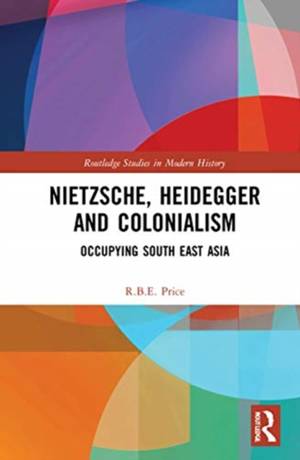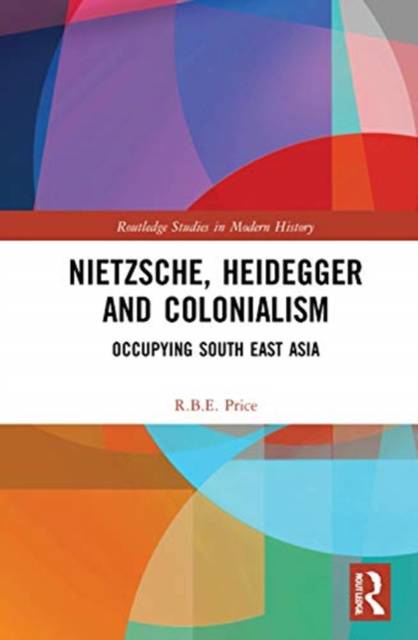
- Afhalen na 1 uur in een winkel met voorraad
- Gratis thuislevering in België vanaf € 30
- Ruim aanbod met 7 miljoen producten
- Afhalen na 1 uur in een winkel met voorraad
- Gratis thuislevering in België vanaf € 30
- Ruim aanbod met 7 miljoen producten
Omschrijving
This text argues that Nietzsche's idea of invalid policy that is believed to be valid and Heidegger's concept of doubt as the reason for a representation are essentially the same idea. Using this insight, the text investigates vignettes from colonial occupation in Southeast Asia and its protest occupations to contend that untruth, covered in camouflages of constancy and morality, has been a powerful force in Asian history. The Nietzschean inflections applied here include Superhumanity, the eternal return of trauma, the critiques of morality, and the moralisation of guilt. Many ideas from the Heideggerian canon are used, including the struggle for individual validity amidst the debasement and imbalance of Being. Concepts such as thrownness, finitude and the remnant cultural power of Christianity, are also deployed in an exposé of colonial practices. The book gives detailed treatment to post-colonial Malaya (1963), Japanese occupied Hong Kong (1941-1945), and the tussle with communism in Cold War Singapore and Malaya, as well as the question of Kuomintang KMT validity in Hong Kong (1945-1949) and British Malaya (1950- 1953). The book explains the struggles for identity in the Hong Kong protest movement (2014-2020) by showing how economic distortion caused by landlordism has been covered by aspirations for freedom.
Specificaties
Betrokkenen
- Auteur(s):
- Uitgeverij:
Inhoud
- Aantal bladzijden:
- 180
- Taal:
- Engels
- Reeks:
- Reeksnummer:
- nr. 85
Eigenschappen
- Productcode (EAN):
- 9780367547875
- Verschijningsdatum:
- 4/05/2021
- Uitvoering:
- Hardcover
- Formaat:
- Genaaid
- Afmetingen:
- 152 mm x 229 mm
- Gewicht:
- 426 g

Alleen bij Standaard Boekhandel
Beoordelingen
We publiceren alleen reviews die voldoen aan de voorwaarden voor reviews. Bekijk onze voorwaarden voor reviews.











